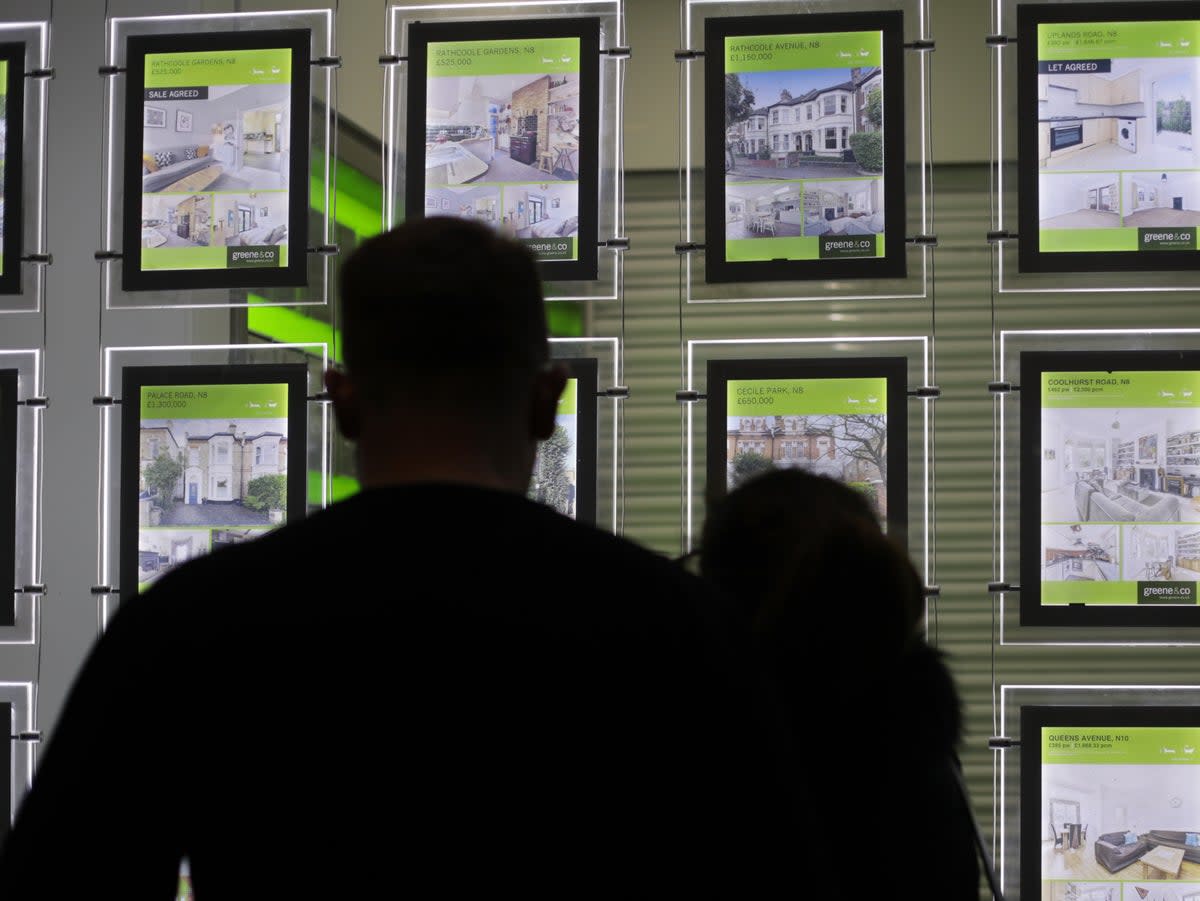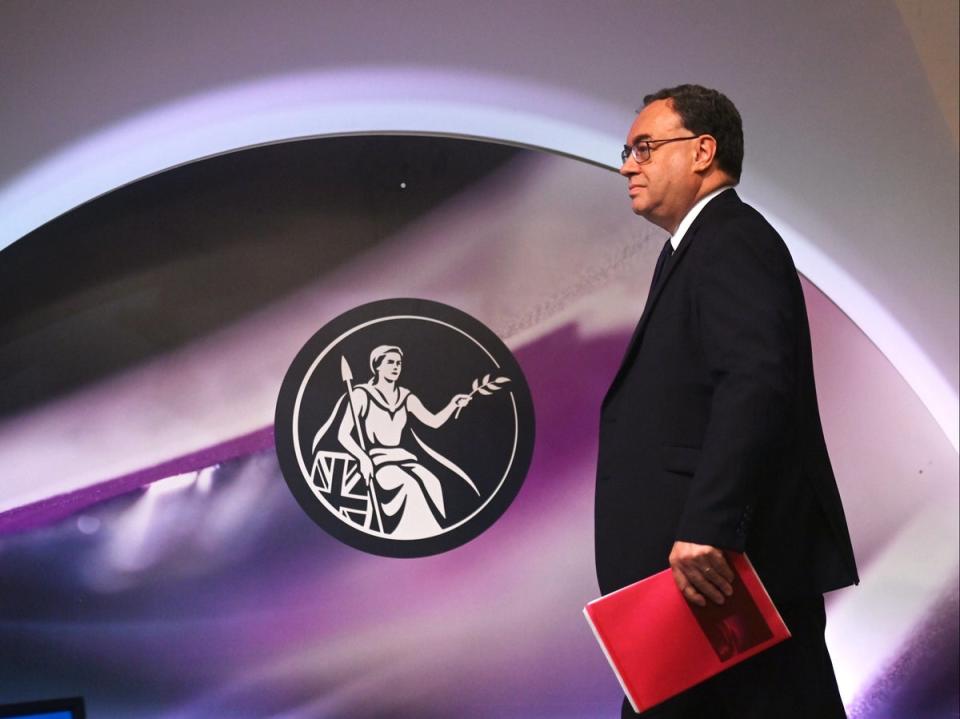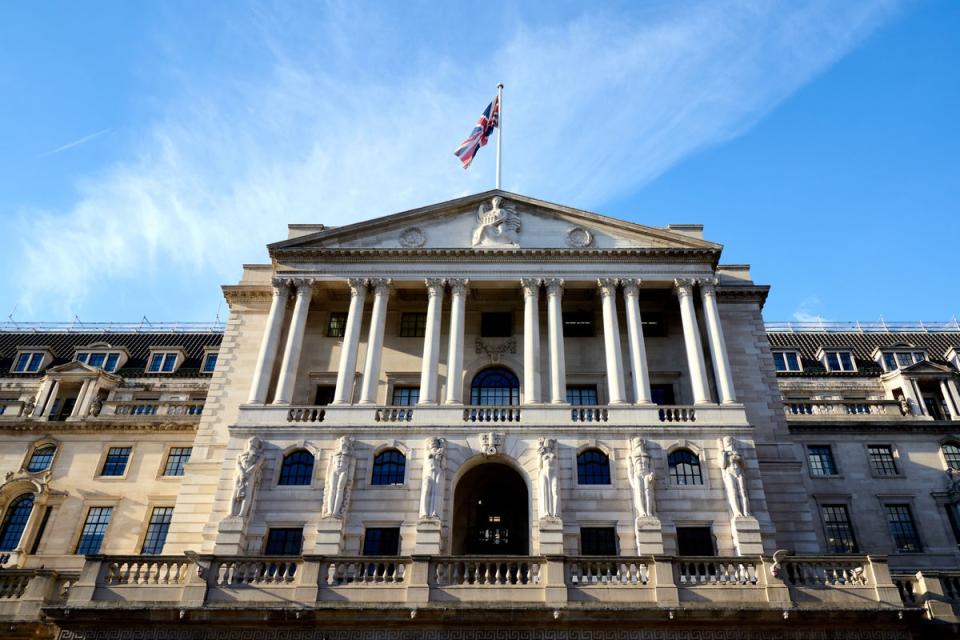Mortgage rates: How 1% can hit your finances for the rest of your life

The Bank of England increasing its base rate is predicted to have a “big impact” on households who might need to pay hundreds more per month to maintain their mortgage - experts have said.
On Thursday, the bank increased its base rate from 4.25 per cent to 4.5 per cent, the 12th rise in just over a year to put it at the highest levels since the 2008 financial crash.
The base rate is used by the BoE in how they charge other banks when they borrow money and it has a knock-on effect for what borrowers pay and savers earn and even a rise of 1 per cent could have huge consequences, insiders have warned the Independent.
“This rate increase was widely predicted, so some lenders had already increased their fixed mortgage rates in the lead up to it,” said Kate Anderson, deputy editor at the personal finance comparison site, finder.com.
“The biggest difference will be that anyone on a variable or tracker mortgage rate will see an immediate increase to their monthly repayments.”

She added: “A rise of 1 per cent can have a big impact on consumers. Somebody on a standard variable rate mortgage for a typical house in the UK could expect to pay almost £200 more per month if their interest rates rose by 1 per cent.
“While the rates continually alter on a standard variable rate mortgage, if it remained at 1 per cent for five years, it would cost an extra £11,600.”
The bank first lifted rates from 0.25 per cent from 0.1 per cent in December 2021 and the further increases have followed on.
This latest rise in the base rate follows a slight dip in the Consumer Prices Index measure of inflation. This dropped from 10.4 per cent in the 12 months to February 2023 to 10.1 per cent in the 12 months to March.

Charles Ambler, partner at wealth management firm Saltus, said: “The 0.25 per cent is a significant hike and around 50 per cent of mortgages at the moment are variable.
“The big fear is that there are a significant number of mortgages rolling off this year from fixed and they can go variable or fixed again…and it is a big shift from what they were fixed from to what’s available now.
“The rise will be very significant for households who will be wondering where that extra money will come from.”
He said the Bank of England seems “pretty content” to be holding rates at the level they are now and that some might be looking at a “significant” change on their mortgage rate.
“If you have 2 per cent now, you could be looking at 5 per cent over two years,” he added. “It’s a 3 per cent difference in your mortgage rate which can be a 50 per cent increase.”

Marc von Grundherr, director of London estate agent Benham and Reeves, said: “A further hike to the cost of borrowing will do little to enthuse the nation’s aspirational homeowners, who are currently battling with an astronomical cost of living while attempting to save enough to climb the ladder.”
As to whether he would advise a different approach to taking a mortgage, he added: “[The] latest hike should serve as a warning for those who are considering borrowing beyond their means, or for those contemplating the re-introduction of the 100 per cent mortgage.
“In the current climate, it simply isn’t worth the risk and you’re far better off waiting and accumulating a more stable nest egg with which to place a mortgage deposit.”
It was reported earlier this week that mortgage providers are now considering new forms of checks around mortgages, such as seeing if applicants have reliably paid Spotify and Netflix subscriptions. Mr Ambler said that it is becoming harder for potential buyers to meet criteria as affordability goes down as interest rates go up.
Asked about the relationship between this and house prices, he added: “Rental rates are increasing at a similar rate to mortgages. People are still very keen to buy to avoid renting. Meanwhile, there doesn’t seem to be a lot of homes being built. Unemployment is staying low and there are not a lot of people selling, especially as homes are worth less.”
The Bank of England has predicted inflation will fall from the middle of this year although experts are unsure as to how consumers could be affected by how this plays out.
Ms Anderson added: “Towards the end of 2023, we’ll start to see them stabilise if inflation is brought under control. But unless the economic landscape dramatically changes, borrowers will have to wait a long time before they see interest rates fall by any significant amount.
“The predicted fall in inflation rates will make it easier for the Bank of England to pause on this latest rate cycle. However, even the predicted fall is still well above the Bank’s 2 per cent target. Until it can bring inflation down to close to 2 per cent, the bank is likely to continue with its current approach.”
James Forrester, managing director of Barrows and Forrester, said he wants the government to step in to prevent events spiralling further.
“The Bank of England has been asleep at the wheel,” he said, “They have been very aggressive in managing the interest rates. It simply isn’t working. You can’t have the BoE increasing interest rates the way they are doing and trying to get the most out of the economy. That won’t work right now, one has got to give.
“If the government has any conservatism left in them, they need to step in.”


